FM: Unilateral acts in Kosovo are unacceptable
Serbian Foreign Minister Vuk Jeremić on Tuesday in New York addressed <a href="http://www.b92.net/eng/news/politics-article.php?yyyy=2011&mm=08&dd=30&nav_id=76139" class="text-link" target= "_blank">a UN Security Council session</a> dedicated to Kosovo.
Tuesday, 30.08.2011.
17:19

Serbian Foreign Minister Vuk Jeremic on Tuesday in New York addressed a UN Security Council session dedicated to Kosovo. He called on the council to send a clear message that unilateral acts in Kosovo are completely unacceptable and incompatible with efforts to find a mutually acceptable solution. FM: Unilateral acts in Kosovo are unacceptable Jeremic also said that the situation in the region is less secure as a direct consequence of unilateral moves by Pristina, that the status quo must be restored in Kosovo, and that those who acted in a destabilizing way must be held accountable. The following are excerpts from his address: A little over a month ago, the situation in our region suddenly became much less secure, less stable, and less predictable. This was the direct consequence of the calculated decision by the ethnic-Albanian secessionist leadership to order an unprovoked armed incursion into North Kosovo, part of a sinister plan to forcibly impose an illegitimate and decisively unwanted regime upon the residents of that part of the province. I urge the Security Council to send a clear message to the perpetrators that their unilateralism is totally unacceptable. The unsanctioned act to send ethnic-Albanian paramilitaries from South Kosovo was perceived by the majority population of North Kosovo as an attempt to occupy the territory. The crisis began on Monday, July 25th, when Pristina's special operations militia, the so-called ROSU, was mobilized and equipped in full riot gear. Dozens of armored personnel carriers transported hundreds of heavily-armed men across the river Ibar. This blatantly violated the longstanding agreement between Pristina and EULEX that ROSU is not to be deployed in the North without the approval of the European Law and Order Mission in Kosovo. Serbia's reaction to the ROSU incursion was swift yet measured. Within hours of the incursion, my Government sent an official delegation to North Kosovo to help bring down the tensions. They began negotiations with KFOR about restoring stability in the province. By the morning of July 26th, the KFOR Commander, Major General Erhard Buhler of the German Army, had secured what we believed was an agreement with Pristina for ROSU to withdraw from North Kosovo. After an initial pullback, however, some of the paramilitaries turned around, and started heading back. This resulted in skirmishes with local Serbs, leading to a number of casualties, and at least one fatality. Later that day, the ROSU militants began to leave North Kosovo for good. At the time, it appeared that calm and the status quo ante would be quickly restored without further altercations. On the morning of July 27th, however, attention was drawn to a highly regrettable incident at one of the checkpoints, where masked individuals set fire to the buildings there. The Serbian Government strongly condemned this act of extremism immediately. We also indicated our readiness to work with relevant stakeholders to uncover the arsonists' identities and motives, as well as to determine whose instructions they were following. I repeat it today: the status quo ante must be reinstated. Those who destabilized North Kosovo through the actions of ROSU must be brought to account. Whoever gave the order to cross the river Ibar violated an agreement with EULEX-and must suffer the consequences. Today, in this Council session, we respectfully ask for answers to some very pointed questions: Who ordered the unilateral action of the ROSU militants on July 25th? Did anyone from the international community know the operation was about to be put into effect? Why did EULEX disappear from North Kosovo in the wake of the ROSU incursion, leaving Serbs with no international police protection whatsoever? Why didn't EULEX exercise its broad executive power-clearly defined in the relevant EU Joint Action-to reverse the unilateral decision of Pristina as soon as it had begun? Should attempting to create a new reality on the ground through the use of force be allowed to stand, especially when dialogue between the parties was producing results? What if Serbs had been the unilateralists, instead of ethnic-Albanians? Time and again, the international community has failed to confront Pristina's unilateralism. Consider the March 2004 pogrom that resulted in the destruction of 35 Orthodox churches and monasteries in a three-day orchestrated campaign of cultural cleansing. Instead of making sure that the guilty were brought to justice, the international community abandoned its Standards Before Status Approach. The brutal attack on the foundation of our national and religious identity was de facto rewarded, and the Unilateral Declaration of Independence was the result. Several dangerous misconceptions have appeared in the public domain over the past month or so. The record needs to be set straight. One erroneous belief is that the round of talks between Belgrade and Pristina that was scheduled for July 20th was postponed by Serbia. This is simply incorrect. We can bear no responsibility for the last-minute decision made by the dialogue facilitator to impose a hiatus on the process-one which is scheduled to resume in a few days time. A second misconception involves the misleading term 'parallel structures' to designate the Serbian institutions in North Kosovo. Not only are they legitimized by the fact that the overwhelming majority of the population supports them, but in the North, no realistic alternative that passes the test of democracy exists. They are the only ones that can function without constant armed protection. The truly parallel structures that operate in the territory are those created on the basis of UDI and the so-called 'Constitution of the Republic of Kosovo', a document that has never been approved by UNMIK or this Council. Finally, I should like to address the basis upon which KFOR and EULEX operate in Kosovo. The only accepted standard-both within NATO and the EU, respectively, but also in this Council-is resolution 1244 (1999) and the status-neutral framework of the UN. Today's Report underscores a number of disturbing developments concerning the Serbian community in Kosovo. "Criminal incidents affecting [non-Albanian] communities nearly doubled during the past three months compared to the same period last year," it says. It also refers to UNHCR figures that identify a nearly record-low number of Kosovo Serb returnees: 95. This is less than half the number of those who came back during the comparable period last year-a deeply worrisome trend. Unfortunately, the Report underemphasizes several other alarming incidents that contributed to the overall escalation of fear and uncertainty amongst Kosovo Serbs. For instance, the Report states that "some Serbian religious sites and Orthodox graveyards were damaged," and focuses on attacks by ethnic-Albanian extremists on two Medieval holy sites-one against the monastery of Zociste near the ethnic-Serb ghetto of Velika Hoca, the other against the church of Kyriake in the center of the ancient Serbian capital of Prizren. However, it fails to mention the most atrocious example of this type of hate crime, despite the fact that the OSCE Mission in Kosovo reported it to UNMIK at the beginning of May and again at the beginning of June. According to OMIK, the 13th century Church of St. John the Baptist in village of Samodreza, Vucitrn municipality, has been "frequently used as a toilet and a waste disposal site by the pupils from the nearby [Kosovo Albanian] elementary school for more than a decade." Earlier this year, measures were finally taken to protect the shrine, including the installation of metal doors at its entrance. During the reporting period, the doors were taken down, and the church again began to be desecrated. Let me underline how important this holy site is for the Serbian people, as it was built on the foundations of the church in which the martyrs of the Battle of Kosovo took communion in 1389. On the political front, murder trials of some of the so-called 'prime minister' Hashim Thaqi's close associates were beginning to reveal awkward connections between public figures and organized crime. Based in part on the sobering testimony of Nazim Bllaca, a confessed assassin and torturer for a quasi-official security service controlled by Hashim Thaqi, senior lieutenants such as Fahredin Gashi and Hysni Rama could be convicted of war crime, as mentioned in Annex 1 to today's Report. In addition, a number of seemingly authentic, publicly available videos show Mr. Bllaca negotiating for contract killings with Azem Sylla, a former KLA commander and currently a deputy leader of Hashim Thaqi's political party. On the record, Mr. Bllaca has accused Hashim Thaqi of responsibility for 450 murders of political opponents and witnesses to war crimes. Mr. Bllaca claims he acquired this first-hand knowledge while working in the Special Unit for Executions of Hashim Thaqi's security service. He has said that he reported directly to Azem Sylla, identified by the Council of Europe as a leading organized crime figure in Kosovo, together with Fatmir Limaj. Limaj is a former minister in Hashim Thaqi's cabinet and a senior KLA official, who stands indicted for corruption and war crimes by EULEX. For the third session in a row, I have taken up the serious allegations contained in a deeply disturbing report released close to ten months ago-and overwhelmingly approved by the Council of Europe Parliamentary Assembly on January 25th-entitled "Inhuman Treatment of People and Illicit Trafficking in Human Organs in Kosovo". I believe it is our most solemn responsibility to come together in the service of justice, and see that it gets done through a comprehensive, independent investigation accountable to the whole world. And I believe we have no right to settle for anything less; for in each previous instance involving war crimes and crimes against humanity in the Balkans-whichever side the perpetrators belonged to and irrespective of their political roles-the Security Council has given a mandate to investigate. Serbia welcomes EULEX's contribution to uncovering what occurred inside Kosovo itself. But the harvesting and smuggling of organs of innocent Serbian civilians took place beyond that territory, as the relevant allegations appear to encompass various UN member States in Europe, Asia and Africa. Only the kidnapping took place within the contours of the province. And as we all know, EULEX cannot operate at full capacity anywhere outside Kosovo. However significant the contribution of what EULEX has called its 'Task Force' might ultimately become, it is an unassailable fact that the EU's Law and Order Mission in Kosovo has neither the mandate-nor the temporal and the territorial jurisdiction-to carry out an investigation that would be comprehensive in scope. On its own, it has no ability to ensure the cooperation of all concerned. Only a mechanism created by the Security Council can do that. Now is the time for each one of us to make a decision about how to move forward. Our guiding framework can be either the use of force or dialogue. The former is the choice of despair, the latter of hope. One cannot have it both ways. The chasm of discord between the stakeholders has been widened by Pristina's unprovoked unilateralism. Its actions have been all the more disappointing given the fact that we had believed the dialogue was taking place in an atmosphere of good faith, conducive to achieving compromise solutions to all outstanding issues. Unilateralism is incompatible with efforts to reach a mutually-acceptable solution to the problem of Kosovo. Everyone must choose which road to take. No equivocation is possible. Serbia reiterates its preference for peace, and will keep working unrelentingly in its pursuit-despite the terrible setback caused by Pristina's unilateralism. In the Balkans of the 21st century, the unsanctioned use of force should not produce an advantage for the party that resorted to it- for this would be tantamount to an encouragement to do it again. I call on this Council to commit to ensuring that when we meet next time, the only changes to the reality on the ground are those that are the product of agreement between the parties to the dialogue. I would like to once again reaffirm my Government's position on Pristina's attempt at unilateral secession from Serbia. We do not and we shall not recognize it, explicitly or implicitly. This is mandated by the democratic will of our people and enshrined in our Constitution. I thank the representatives of the UN Secretariat's Department of Peacekeeping Operations for their remarks, and gratefully acknowledge the Report's unequivocal statement that UNMIK's "Mission's priorities remain unchanged". Serbia looks forward to the swift appointment of a new SRSG. We will continue to be actively engaged in the consultations to produce an acceptable nomination. This will help ensure UNMIK remains an indispensable pillar of peace and stability in Kosovo. Vuk Jeremic (file)
FM: Unilateral acts in Kosovo are unacceptable
Jeremić also said that the situation in the region is less secure as a direct consequence of unilateral moves by Priština, that the status quo must be restored in Kosovo, and that those who acted in a destabilizing way must be held accountable.The following are excerpts from his address:
A little over a month ago, the situation in our region suddenly became much less secure, less stable, and less predictable. This was the direct consequence of the calculated decision by the ethnic-Albanian secessionist leadership to order an unprovoked armed incursion into North Kosovo, part of a sinister plan to forcibly impose an illegitimate and decisively unwanted regime upon the residents of that part of the province. I urge the Security Council to send a clear message to the perpetrators that their unilateralism is totally unacceptable.
The unsanctioned act to send ethnic-Albanian paramilitaries from South Kosovo was perceived by the majority population of North Kosovo as an attempt to occupy the territory.
The crisis began on Monday, July 25th, when Priština's special operations militia, the so-called ROSU, was mobilized and equipped in full riot gear. Dozens of armored personnel carriers transported hundreds of heavily-armed men across the river Ibar. This blatantly violated the longstanding agreement between Priština and EULEX that ROSU is not to be deployed in the North without the approval of the European Law and Order Mission in Kosovo.
Serbia's reaction to the ROSU incursion was swift yet measured. Within hours of the incursion, my Government sent an official delegation to North Kosovo to help bring down the tensions. They began negotiations with KFOR about restoring stability in the province. By the morning of July 26th, the KFOR Commander, Major General Erhard Buhler of the German Army, had secured what we believed was an agreement with Priština for ROSU to withdraw from North Kosovo.
After an initial pullback, however, some of the paramilitaries turned around, and started heading back. This resulted in skirmishes with local Serbs, leading to a number of casualties, and at least one fatality.
Later that day, the ROSU militants began to leave North Kosovo for good. At the time, it appeared that calm and the status quo ante would be quickly restored without further altercations.
On the morning of July 27th, however, attention was drawn to a highly regrettable incident at one of the checkpoints, where masked individuals set fire to the buildings there. The Serbian Government strongly condemned this act of extremism immediately. We also indicated our readiness to work with relevant stakeholders to uncover the arsonists' identities and motives, as well as to determine whose instructions they were following.
I repeat it today: the status quo ante must be reinstated. Those who destabilized North Kosovo through the actions of ROSU must be brought to account. Whoever gave the order to cross the river Ibar violated an agreement with EULEX-and must suffer the consequences.
Today, in this Council session, we respectfully ask for answers to some very pointed questions:
Who ordered the unilateral action of the ROSU militants on July 25th?
Did anyone from the international community know the operation was about to be put into effect?
Why did EULEX disappear from North Kosovo in the wake of the ROSU incursion, leaving Serbs with no international police protection whatsoever?
Why didn't EULEX exercise its broad executive power-clearly defined in the relevant EU Joint Action-to reverse the unilateral decision of Priština as soon as it had begun?
Should attempting to create a new reality on the ground through the use of force be allowed to stand, especially when dialogue between the parties was producing results? What if Serbs had been the unilateralists, instead of ethnic-Albanians? Time and again, the international community has failed to confront Priština's unilateralism. Consider the March 2004 pogrom that resulted in the destruction of 35 Orthodox churches and monasteries in a three-day orchestrated campaign of cultural cleansing. Instead of making sure that the guilty were brought to justice, the international community abandoned its Standards Before Status Approach. The brutal attack on the foundation of our national and religious identity was de facto rewarded, and the Unilateral Declaration of Independence was the result.
Several dangerous misconceptions have appeared in the public domain over the past month or so. The record needs to be set straight.
One erroneous belief is that the round of talks between Belgrade and Priština that was scheduled for July 20th was postponed by Serbia. This is simply incorrect. We can bear no responsibility for the last-minute decision made by the dialogue facilitator to impose a hiatus on the process-one which is scheduled to resume in a few days time.
A second misconception involves the misleading term 'parallel structures' to designate the Serbian institutions in North Kosovo. Not only are they legitimized by the fact that the overwhelming majority of the population supports them, but in the North, no realistic alternative that passes the test of democracy exists. They are the only ones that can function without constant armed protection.
The truly parallel structures that operate in the territory are those created on the basis of UDI and the so-called 'Constitution of the Republic of Kosovo', a document that has never been approved by UNMIK or this Council.
Finally, I should like to address the basis upon which KFOR and EULEX operate in Kosovo. The only accepted standard-both within NATO and the EU, respectively, but also in this Council-is resolution 1244 (1999) and the status-neutral framework of the UN.
Today's Report underscores a number of disturbing developments concerning the Serbian community in Kosovo.
"Criminal incidents affecting [non-Albanian] communities nearly doubled during the past three months compared to the same period last year," it says. It also refers to UNHCR figures that identify a nearly record-low number of Kosovo Serb returnees: 95. This is less than half the number of those who came back during the comparable period last year-a deeply worrisome trend.
Unfortunately, the Report underemphasizes several other alarming incidents that contributed to the overall escalation of fear and uncertainty amongst Kosovo Serbs.
For instance, the Report states that "some Serbian religious sites and Orthodox graveyards were damaged," and focuses on attacks by ethnic-Albanian extremists on two Medieval holy sites-one against the monastery of Zočiste near the ethnic-Serb ghetto of Velika Hoča, the other against the church of Kyriake in the center of the ancient Serbian capital of Prizren.
However, it fails to mention the most atrocious example of this type of hate crime, despite the fact that the OSCE Mission in Kosovo reported it to UNMIK at the beginning of May and again at the beginning of June.
According to OMIK, the 13th century Church of St. John the Baptist in village of Samodreža, Vučitrn municipality, has been "frequently used as a toilet and a waste disposal site by the pupils from the nearby [Kosovo Albanian] elementary school for more than a decade." Earlier this year, measures were finally taken to protect the shrine, including the installation of metal doors at its entrance. During the reporting period, the doors were taken down, and the church again began to be desecrated.
Let me underline how important this holy site is for the Serbian people, as it was built on the foundations of the church in which the martyrs of the Battle of Kosovo took communion in 1389.
On the political front, murder trials of some of the so-called 'prime minister' Hashim Thaqi's close associates were beginning to reveal awkward connections between public figures and organized crime.
Based in part on the sobering testimony of Nazim Bllaca, a confessed assassin and torturer for a quasi-official security service controlled by Hashim Thaqi, senior lieutenants such as Fahredin Gashi and Hysni Rama could be convicted of war crime, as mentioned in Annex 1 to today's Report. In addition, a number of seemingly authentic, publicly available videos show Mr. Bllaca negotiating for contract killings with Azem Sylla, a former KLA commander and currently a deputy leader of Hashim Thaqi's political party.
On the record, Mr. Bllaca has accused Hashim Thaqi of responsibility for 450 murders of political opponents and witnesses to war crimes. Mr. Bllaca claims he acquired this first-hand knowledge while working in the Special Unit for Executions of Hashim Thaqi's security service. He has said that he reported directly to Azem Sylla, identified by the Council of Europe as a leading organized crime figure in Kosovo, together with Fatmir Limaj. Limaj is a former minister in Hashim Thaqi's cabinet and a senior KLA official, who stands indicted for corruption and war crimes by EULEX.
For the third session in a row, I have taken up the serious allegations contained in a deeply disturbing report released close to ten months ago-and overwhelmingly approved by the Council of Europe Parliamentary Assembly on January 25th-entitled "Inhuman Treatment of People and Illicit Trafficking in Human Organs in Kosovo".
I believe it is our most solemn responsibility to come together in the service of justice, and see that it gets done through a comprehensive, independent investigation accountable to the whole world.
And I believe we have no right to settle for anything less; for in each previous instance involving war crimes and crimes against humanity in the Balkans-whichever side the perpetrators belonged to and irrespective of their political roles-the Security Council has given a mandate to investigate.
Serbia welcomes EULEX's contribution to uncovering what occurred inside Kosovo itself. But the harvesting and smuggling of organs of innocent Serbian civilians took place beyond that territory, as the relevant allegations appear to encompass various UN member States in Europe, Asia and Africa. Only the kidnapping took place within the contours of the province. And as we all know, EULEX cannot operate at full capacity anywhere outside Kosovo.
However significant the contribution of what EULEX has called its 'Task Force' might ultimately become, it is an unassailable fact that the EU's Law and Order Mission in Kosovo has neither the mandate-nor the temporal and the territorial jurisdiction-to carry out an investigation that would be comprehensive in scope. On its own, it has no ability to ensure the cooperation of all concerned. Only a mechanism created by the Security Council can do that.
Now is the time for each one of us to make a decision about how to move forward. Our guiding framework can be either the use of force or dialogue. The former is the choice of despair, the latter of hope. One cannot have it both ways.
The chasm of discord between the stakeholders has been widened by Priština's unprovoked unilateralism. Its actions have been all the more disappointing given the fact that we had believed the dialogue was taking place in an atmosphere of good faith, conducive to achieving compromise solutions to all outstanding issues.
Unilateralism is incompatible with efforts to reach a mutually-acceptable solution to the problem of Kosovo. Everyone must choose which road to take. No equivocation is possible.
Serbia reiterates its preference for peace, and will keep working unrelentingly in its pursuit-despite the terrible setback caused by Priština's unilateralism.
In the Balkans of the 21st century, the unsanctioned use of force should not produce an advantage for the party that resorted to it- for this would be tantamount to an encouragement to do it again.
I call on this Council to commit to ensuring that when we meet next time, the only changes to the reality on the ground are those that are the product of agreement between the parties to the dialogue.
I would like to once again reaffirm my Government's position on Priština's attempt at unilateral secession from Serbia. We do not and we shall not recognize it, explicitly or implicitly. This is mandated by the democratic will of our people and enshrined in our Constitution.
I thank the representatives of the UN Secretariat's Department of Peacekeeping Operations for their remarks, and gratefully acknowledge the Report's unequivocal statement that UNMIK's "Mission's priorities remain unchanged".
Serbia looks forward to the swift appointment of a new SRSG. We will continue to be actively engaged in the consultations to produce an acceptable nomination. This will help ensure UNMIK remains an indispensable pillar of peace and stability in Kosovo.










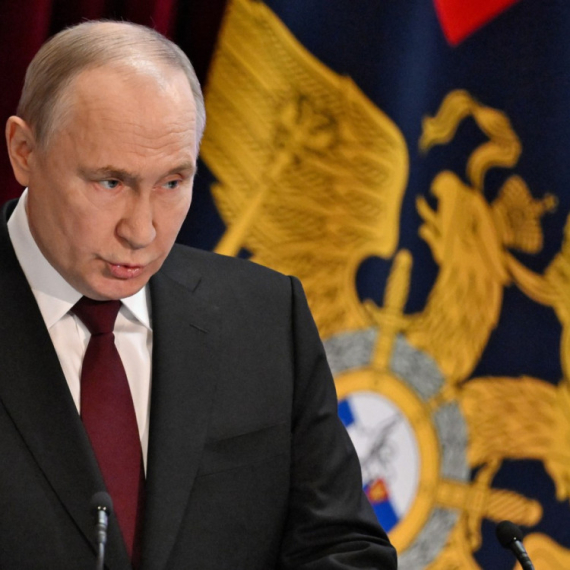

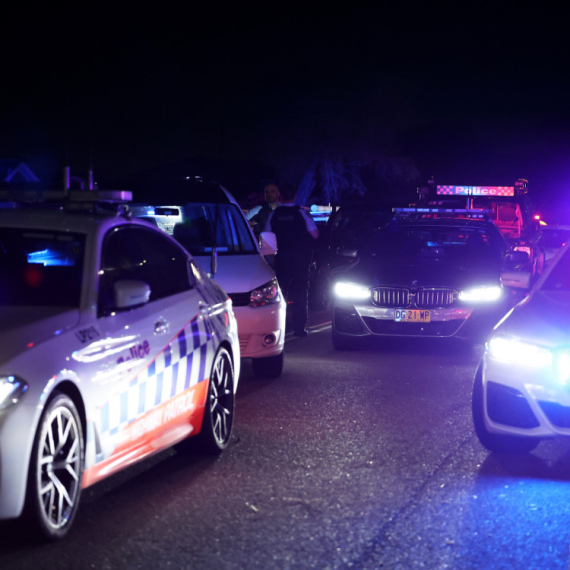



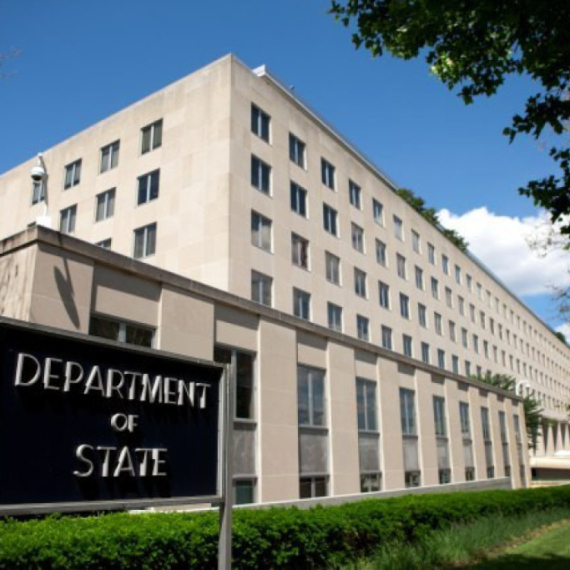
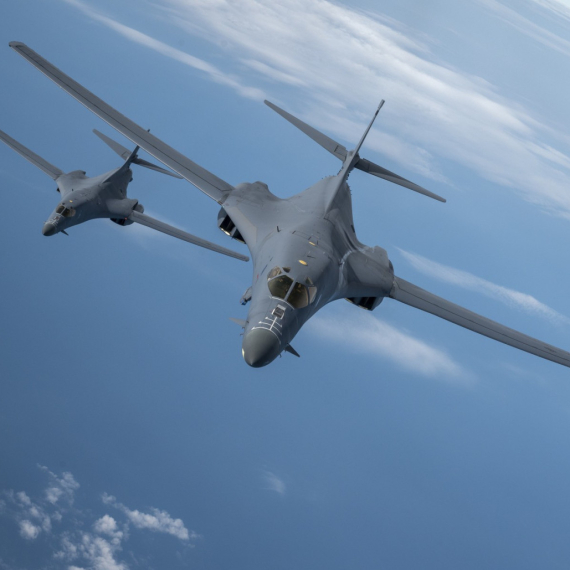




















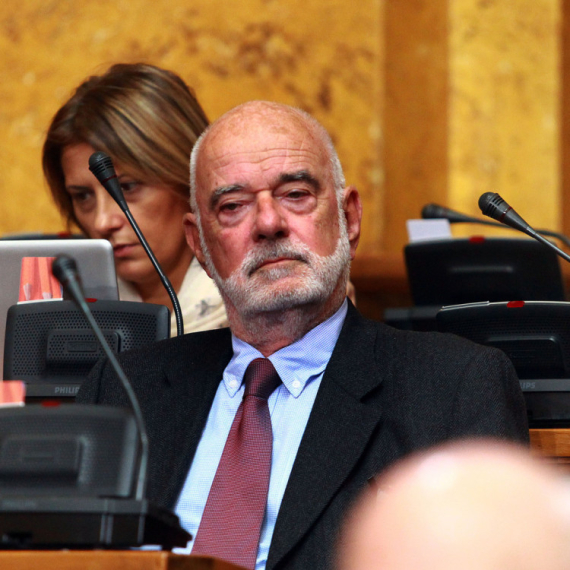

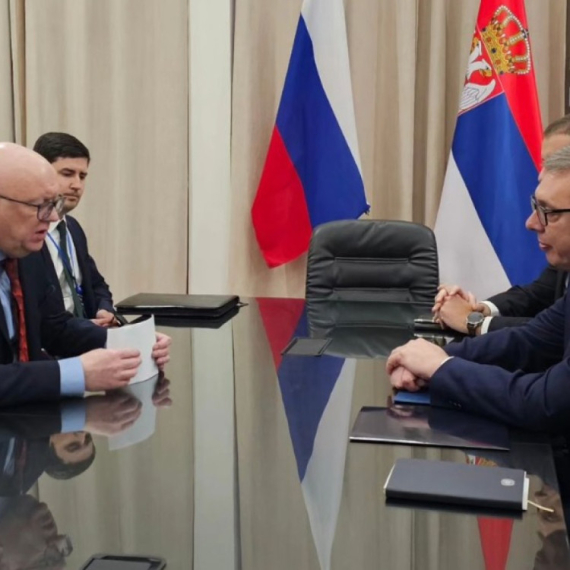











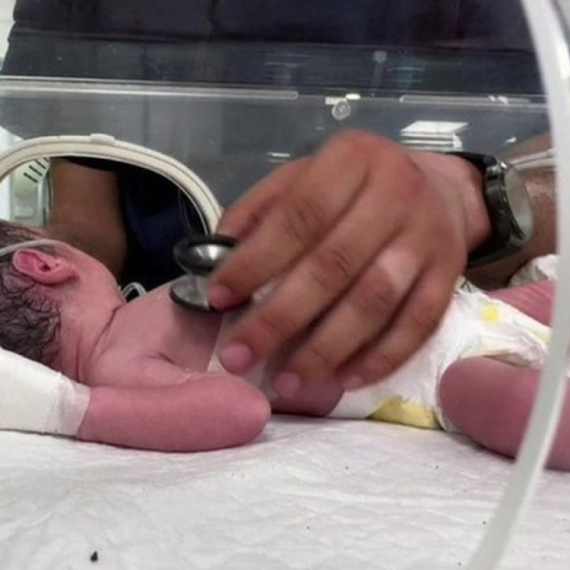

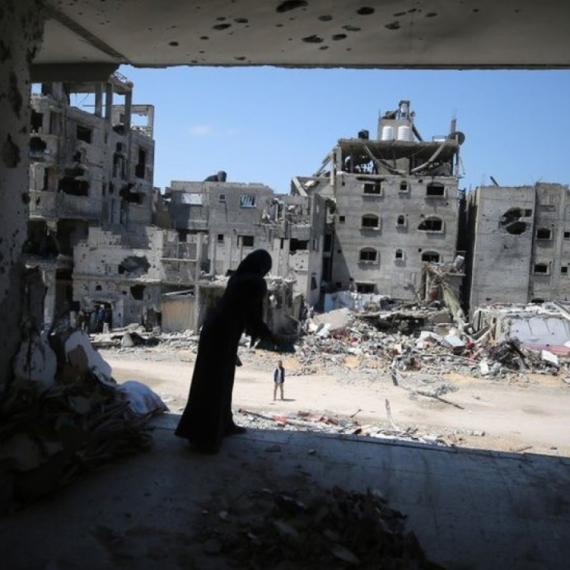


Komentari 18
Pogledaj komentare